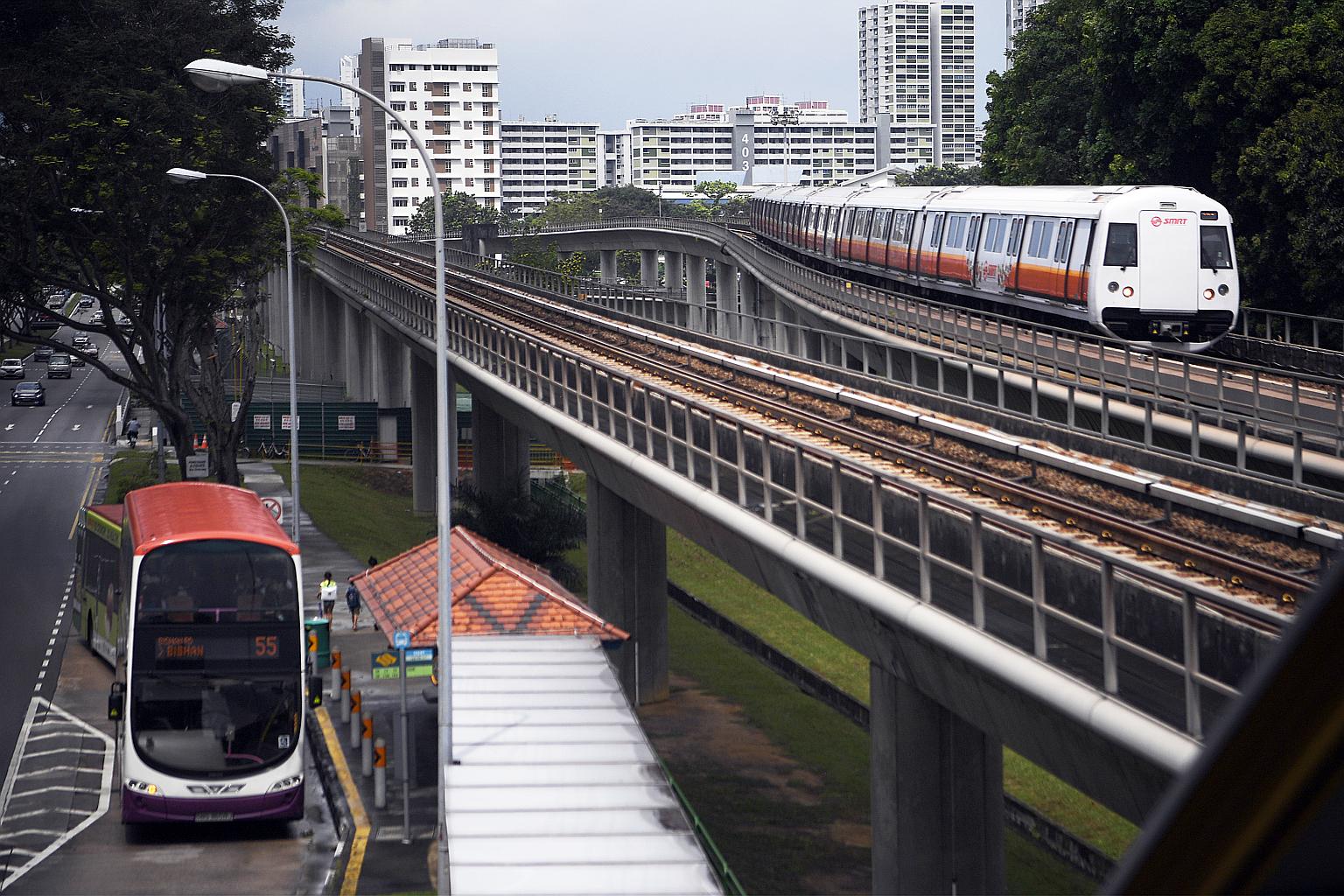Parliament: Higher fares will be needed in face of rising subsidies for public transport, says Khaw Boon Wan
Sign up now: Get ST's newsletters delivered to your inbox

Transport Minister Khaw Boon Wan indicated in Parliament on July 8, 2019, that higher public transport fares would be necessary in order to keep government subsidies in check.
PHOTO: ST FILE
Follow topic:
SINGAPORE - Transport Minister Khaw Boon Wan said on Monday (July 8) that the Government is currently subsidising more than 30 per cent of public transport operations, and indicated that higher fares would be necessary to keep subsidies in check.
"Between 2016 and 2017, the total cost of running the rail network has increased by around $270 million," Mr Khaw told Parliament. "As the fares paid by commuters do not cover operating costs, the rail companies are operating at a loss. In the latest reported financial year, SMRT Trains incurred a loss of $86 million. SBS Transit's train division also lost tens of millions of dollars."
Mr Sitoh Yih Pin (Potong Pasir) had sought an update on the current level of rail reliability and how such continued efforts are going to be sustained and funded.
The increased expenditure had largely been on the back of multi-year efforts to raise rail reliability. Mr Khaw noted that the MRT network is now clocking nearly one million train-kilometres between delays - a seven-fold improvement from 2015. He added that over the next five years, the Government expects to spend $4.5 billion on operating subsidies. This would be on top of the $25 billion to be spent on building new lines.
Mr Khaw said that until recently, Public Transport Council (PTC) fare adjustments were not implemented to the full extent of what the formula allowed. He said: "If we had strictly followed PTC's fare formula, the operators would have been better able to cover the costs of the intensified maintenance."
He added that the Government will continue to operate under the current PTC formula, which is valid till 2023. "But we must have the discipline to implement the formula fully, as we adjust fares over the next four years," he said.
"In due course, the PTC will need to review the fare adjustment mechanism to reflect the increased operating cost to support the intensified maintenance, and the additional operating subsidies from the Government to the MRT system."
Meanwhile, he said the Government will provide operators with "a temporary enhanced maintenance grant".
Nominated MP Walter Theseira asked the minister for the targeted level of subsidy "in the longer run".
Mr Khaw said the original plan was for the Government to pay for infrastructure and the first set of operating assets, and for the replacement of these assets to be funded by fares.
If that had worked well, there would be zero subsidy for operations, he noted. As it turned out, that has proved to be unachievable, and the operating subsidy is now "more than 30 per cent".
At the end of the day, the system will have to be funded by either taxpayers or commuters. "We've just got to find that balance," Mr Khaw said.
"Should we drive towards zero (operating subsidy)? I mean, we must never give up on this hope but if it is not possible in the medium term, it does not matter. The key point is, we must not allow the operating subsidy percentage to continue to rise."
To another question from Mr Sitoh on whether MRT reliability should continue to improve - to beyond one million train-km between delays - the minister said the figure is already a fairly high standard which only a handful of metro systems in the world are able to meet.
"But because of various reasons, Singapore commuters are demanding an even higher level and are prepared to pay... We leave that to the next transport minister," he said.
SMRT has good team, but some attrition useful: Khaw
SMRT has a very good team of people in charge, and sometimes, some attrition is useful, Transport Minister Khaw Boon Wan said.
He was responding to Workers' Party chief Pritam Singh (Aljunied GRC), who asked about recent reports in The Straits Times on various resignations at the rail operator, and what impact this has on SMRT's plans for rail reliability for the long haul.
Mr Singh said his concern was whether there is a deeper issue within SMRT that the public ought to be concerned about.
Replied Mr Khaw: "With the change of leadership of SMRT... and the team that I worked with both above ground and underground, I know them well and it's a very good team of people. And, sometimes some attrition is useful."
SMRT had a change of leadership last August when Mr Neo Kian Hong replaced Mr Desmond Kuek as chief executive. ST also reported in April this year that about 30 executives in its human resources department had quit, as had two senior engineers.
Citing the ST reports, Mr Singh asked: "Is there a significant number that Singaporeans are to be concerned that we start slipping in terms of the targets the minister has set?... Is there any concern the ministry has about morale within SMRT and whether the system can continue to move forward reliably?"
Mr Khaw pointed to an ST report last month that SMRT Trains' chief executive was expected to resign, saying he immediately texted the SMRT chairman - Mr Seah Moon Ming - about it.
"He was in the air then and as soon as he landed at the airport, he replied to me that it is fake news," said the minister. "ST gave an apology in tiny font size," Mr Khaw added.
The Straits Times had apologised for the error on Page 2 of the print edition, where corrections are usually placed, and in its regular font size.

